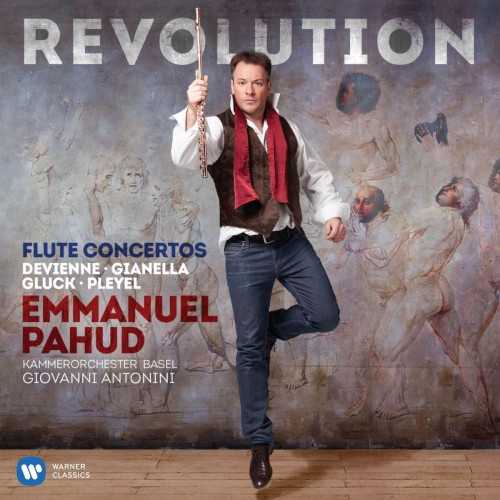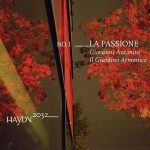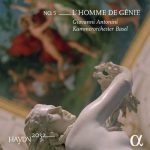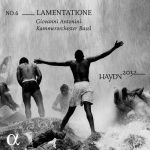
Composer: François Devienne, Luigi Gianella, Christoph Willibald von Gluck, Ignaz Pleyel, Antoine Hugot
Performer: Emmanuel Pahud
Orchestra: Kammerorchester Basel
Conductor: Giovanni Antonini
Format: FLAC (tracks)
Label: Warner
Release: 2015
Size: 1.32 GB
Recovery: +3%
Scan: yes
François Devienne:
Concerto No.7 in E minor
01. I. Allegro
02. II. Adagio
03. III. Rondo: Allegretto
Luigi Gianella:
Concerto No.1 in D minor
04. I. Allegro
05. II. Adagio
06. III. Allegro
Christoph Willibald von Gluck:
Concerto in G
07. I. Allegro non molto
08. II. Adagio
09. III. Finale: Allegro comodo
Ignaz Pleyel:
Concerto in C B106
10. I. Allegro
11. II. Adagio
12. III. Rondo: Allegro molto
Antoine Hugot:
13. Rondo from Concerto in B minor
Widely recognised as the finest flautist performing on the world stage today, Emmanuel Pahud has joined forces with the Kammerorchester Basel, led by Giovanni Antonini, to record a programme of flute concertos by composers from the time of the French Revolution. The album, which brings together rarities by Christoph Willibald Gluck, Ignaz Pleyel, François Devienne and Luigi Gianella, reveals how the form and the instrument underwent their own musical revolution during this tumultuous period.
For his latest release, Pahud delves once again into the history and evolution of the flute in the second half of the 18th century, following the success The Flute King, his 2012 album of music written for and by the Prussian king and gifted flautist-composer Frederick the Great. ‘Pahud is outstanding…A fascinating snap-shot of the mid-18th century Berlin court,’ BBC Music Magazine enthused.
Pahud now continues on this path from Frederick the Great to the French Revolution, capturing the drama and excitement of the political upheaval that surrounded what was a golden age in music, particularly for the flute. “For me, this album is about taking you on a journey via three decades of flute concertos surrounding the events of the famous storming of the Bastille in 1789, in what was a rapid transition from Gluck’s musical idiom, shaped by opera and the Baroque – his concerto here embodies Paris before the revolution – to the Romantic and revolutionary ideal that we hear in the music that follows,” Pahud explains.
“In choosing to structure this album around these remarkable concertos, I had the great fortune of having Giovanni Antonini and the Kammerorchester Basel as partners – they defend this music with fighting spirit and a truly revolutionary fervour!”



